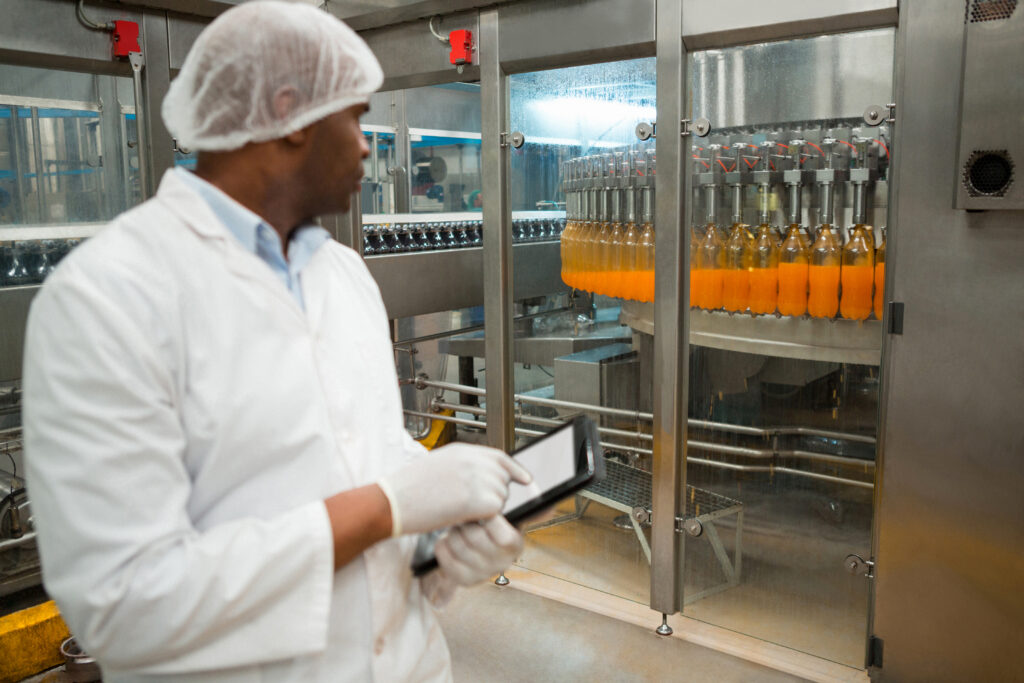Introduction
The surge in demand for meal replacement beverages reflects India’s evolving relationship with food and health. As urban professionals, fitness enthusiasts, and health-conscious consumers seek convenience without compromising nutrition, meal replacement drinks have emerged as a key category within the functional beverage segment and thus the demand for meal replacement drink formulation.
While protein shakes emphasize targeted protein intake and flavoured milks cater to indulgent snacking, meal replacement drinks occupy a distinctive space – offering balanced, complete nutrition in an accessible format. Successfully bringing such products to market requires a sophisticated approach to meal replacement drink formulation, combining scientific precision with cultural sensitivity.
Suite42’s integrated methodology ensures products are not only nutritionally comprehensive but also resonate deeply with Indian taste preferences and lifestyle needs.
An article that might interest you: Meal Replacement Drinks: The Rising Demand for Convenience and Nutrition in India
Suite42’s Nutrient Profiling Methodology for meal replacement drink formulation
Science-backed Macro and Micronutrient Design
Developing a winning meal replacement drink starts with meticulous nutrient profiling. Suite42 prioritizes the balance of macronutrients – proteins, carbohydrates, and fats – alongside essential micronutrients to create formulations that truly function as meal alternatives.
By leveraging deep market insights and consumer behavior studies, Suite42 customizes energy and nutrient compositions tailored to Indian consumers’ dietary patterns and metabolic needs. Proteins sourced from dairy and plant origins enhance muscle maintenance and satiety; low-GI carbohydrates provide sustained energy; healthy fats support metabolic and cognitive functions.
Micronutrient fortification addresses prevalent deficiencies, such as vitamin D, calcium, and iron, helping meet daily recommended intake levels and reinforcing the positioning as a comprehensive nutritional beverage.

Custom Fortification Strategies
Beyond foundational nutrient design, Suite42 integrates targeted fortification strategies to support specific lifestyle objectives. For example, urban consumers with high stress levels may benefit from adaptogens and B vitamins to improve resilience and energy metabolism. Fitness-focused individuals might require higher branched-chain amino acid (BCAA) content to support muscle recovery.
This precise customization differentiates Suite42’s meal replacement drink formulation approach, enabling brands to align product benefits with clearly defined consumer needs and market niches.
Specific Taste & Texture Formulation Strategies
Flavor Engineering and Regional Customization
Taste remains a pivotal factor determining product adoption and repeat purchases. Suite42 places significant emphasis on creating flavors that reflect Indian culinary preferences, merging familiarity with innovation.
Whether it’s classic profiles like chocolate and vanilla or culturally inspired flavors such as mango-cardamom, saffron-pistachio, and masala chai, Suite42 ensures products resonate on an emotional level. According to Nielsen India (2023), 58% of consumers are more inclined to try functional beverages when offered in familiar local flavors, underscoring the importance of regional adaptation.
Advanced flavor engineering techniques, including natural masking agents and controlled-release systems, help neutralize any off-notes associated with protein fortification or micronutrient additions, creating a seamless sensory experience.
Advanced Texture Optimization Techniques for meal replacement formulation
Texture and mouthfeel are equally critical in meal replacement drink formulation. Common challenges like phase separation, sedimentation, or grittiness can significantly undermine consumer satisfaction.
Suite42 utilizes proprietary homogenization, microfiltration, and natural stabilizer integration to deliver smooth, creamy textures that mimic traditional milk-based beverages. This approach not only enhances the drinking experience but also ensures consistency across shelf life, contributing to superior product quality and brand reputation.
An article that might interest you: What makes Suite42 – a Reliable Food Contract Manufacturing Company?
Product Scenario
Example: Formulating for Busy Professionals in Metro Cities
Imagine a product designed for urban professionals navigating hectic schedules and frequent travel. This demographic values portability, quick energy, and minimal preparation. Suite42 would prioritize a balanced macronutrient profile with moderate protein, sustained-release carbohydrates, and stress-support adaptogens, all delivered in a compact, resealable bottle.
Flavor options such as coffee-caramel or spiced vanilla cater to adult palates and complement typical metropolitan taste preferences.
Example: Fitness-focused Consumers Seeking High-Protein Meals
For fitness enthusiasts, Suite42 shall emphasize high protein content (20–25 grams per serving) derived from a blend of whey and pea protein for optimal amino acid coverage. Low sugar content, enriched BCAAs, and electrolytes support muscle recovery and hydration.
Lighter, refreshing flavors such as lemon-mint or tropical coconut appeal post-workout and avoid the heaviness often associated with traditional meal replacements.
How Suite42 Ensures Regulatory Compliance and Quality
FSSAI Standards and Nutritional Labeling
Launching a meal replacement drink in India demands strict adherence to the Food Safety and Standards Authority of India (FSSAI) regulations. Suite42’s in-house regulatory team ensures all formulations comply with permitted nutrient levels, fortification standards, and allowable claims.
Labeling practices are meticulously managed to accurately communicate calorie counts, macronutrient breakdowns, and functional benefits without overstepping legal boundaries. Claims like “complete meal,” “high protein,” or “supports immunity” are substantiated through rigorous internal testing and aligned with FSSAI guidelines.
This comprehensive compliance framework not only mitigates legal risks but also enhances consumer confidence in the product’s authenticity and safety.
Quality Assurance Across Scale-up
Maintaining consistency from pilot batches to full-scale commercial production is one of the most challenging aspects of meal replacement drink formulation. Suite42 employs robust quality control protocols, including ingredient traceability, batch-wise nutrient verification, and sensory evaluation at multiple production stages.
Advanced equipment and automated monitoring systems ensure critical parameters – like pH, viscosity, and microbial safety – remain within specified ranges throughout scaling.
These measures enable partner brands to deliver products that maintain taste, texture, and nutritional integrity across every bottle, fostering long-term loyalty and strong market positioning.

Frequently Asked Questions (FAQs)
1. What makes a meal replacement drink truly nutritious?
A meal replacement drink is considered nutritious when it delivers a balanced ratio of proteins, carbohydrates, and healthy fats, along with essential vitamins and minerals.
Suite42’s meal replacement drink formulation ensures that macronutrients provide sustained energy while micronutrient fortification addresses common deficiencies like vitamin D, calcium, and iron. This makes the beverage a real substitute for a complete meal, not just a flavored shake.
2. How can I create meal replacement drinks in India?
To create meal replacement drinks in India, you need three pillars:
- Nutritional science – designing the right macro and micronutrient profile.
- Taste & texture – adapting flavors and mouthfeel to Indian consumer preferences.
- Compliance & production – meeting FSSAI guidelines and scaling manufacturing.
Suite42 offers meal replacement drink formulation and meal replacement contract manufacturing in India, handling everything from R&D to full-scale production so that brands can launch faster with less risk.
3. Why is local taste adaptation important for Indian consumers?
Indian consumers are more likely to adopt nutritional beverages when they come in familiar flavors. Nielsen (2023) data show that nearly 60% prefer functional drinks with local taste profiles, such as masala chai, mango-cardamom, or saffron-pistachio. Suite42’s flavor engineering merges global functional drink trends with Indian consumer beverage trends to maximize acceptance and repeat purchases.
4. What is the role of contract manufacturing in meal replacement drinks?
Contract manufacturing allows brands to access expertise, technology, and regulatory support without setting up their own production facilities. Suite42 provides meal replacement contract manufacturing in India by:
- Designing nutrient-dense formulations
- Ensuring FSSAI compliance
- Managing quality checks from pilot to scale-up
- Delivering consistent production at commercial volumes
This enables startups and established brands to bring products to market quickly and cost-effectively.
5. How does Suite42 ensure taste and texture quality in meal replacement drinks?
Taste and texture are critical for consumer satisfaction. Suite42 uses advanced flavor-masking techniques, natural stabilizers, homogenization, and microfiltration to ensure smooth, creamy textures and eliminate grittiness. This helps nutritional beverage experts deliver products that taste great while maintaining nutritional integrity.
6. What are the current Indian consumer beverage trends for meal replacements?
Key Indian consumer beverage trends shaping this category include:
- Demand for clean-label, transparent ingredients
- Preference for local, familiar flavors
- Interest in functional add-ons like adaptogens or electrolytes
- Portability and resealable packaging
Suite42 aligns R&D with these trends to create products that resonate with evolving consumer expectations.
7. How does Suite42 help with scaling and production of meal replacement drinks?
Scaling a product from lab trials to mass production is often where brands struggle. Suite42 specializes in beverage scaling and production by ensuring:
- Ingredient traceability
- Batch-wise nutrient verification
- Automated monitoring for consistency
This ensures every bottle delivers the same taste, texture, and nutritional quality, supporting strong market positioning.
8. Why should brands choose Suite42 for meal replacement R&D in India?
Suite42 combines meal replacement R&D in India with full execution capabilities. From nutrient profiling and custom fortification to flavor design, FSSAI compliance, and large-scale production, brands get an end-to-end partner. This reduces time-to-market, enhances consumer acceptance, and builds long-term product credibility.
Check out our Categories: Functional Beverages – Meal Replacement Drinks
Conclusion
Bringing a successful meal replacement drink to market in India is a complex endeavor that blends advanced nutritional science, sensory mastery, and stringent regulatory diligence. Suite42’s holistic approach to meal replacement drink formulation empowers brands to transform ambitious product concepts into market-ready, scalable, and culturally resonant offerings.
From tailoring macro and micronutrient profiles to engineering regionally inspired flavors and ensuring seamless scale-up, Suite42 supports every stage of product development with unparalleled expertise. This strategic partnership reduces time-to-market, mitigates risk, and enhances consumer acceptance – critical factors for success in the fast-evolving functional beverage segment.

For brands aiming to lead the future of nutritional convenience in India, collaborating with Suite42 offers a clear path to creating innovative, high-quality meal replacement drinks that resonate with modern consumers and stand out on crowded retail shelves.


